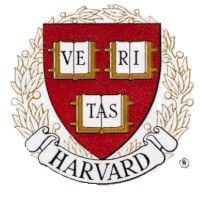While Yale Law School recently lost several big-name professors, its rival in Cambridge has been expanding aggressively — often directly at Yale’s expense.
Harvard’s latest appointments are part of a host of changes under the deanship of Elena Kagan targeted at dispelling stereotypes about Harvard Law School’s low quality of life, large class sizes and an inaccessible faculty. Under her tenure, the school has halved some class sizes, renovated several buildings and started construction on several more, invigorated its fund-raising efforts and unveiled an initiative to encourage its graduates to enter public service.
Most recently — and perhaps most strikingly — Kagan announced Friday that Harvard Law School would scrap letter grades, joining Yale and Stanford in adopting a modified pass-fail scheme.
Harvard is now challenging Yale for faculty and scholarship in a way it hasn’t in decades, sources said.
For years, internal politics froze Harvard’s ability to make lateral offers, said Columbia Law professor Jeffrey Gordon ’71, who attended Harvard Law School. No longer.
Harvard’s loud reentry onto the market has created a competitive environment that had not existed before, Gordon said. And it’s a new kind of market that has dealt some surprises to Yale.
“These things have a momentum — people come because others are here,” said Harvard Law professor Philip Heymann ’54. “[Kagan] has established momentum here at Harvard Law School that will be hard for anyone to match for a while.”
Yale did add four new tenured professors this year. But Harvard added six, some of them directly from Yale. Raids between the two schools are common, and Yale has at least one outstanding bid for a prominent Harvard professor.
“There’s a nice friendly rivalry here,” Harvard Law professor Reinier Kraakman LAW ’79 said.
Harvard’s feverish expansion has echoed down the line to other law schools, said Harvard Law professor Bruce Mann LAW ’75 GRD ’77. That, coupled with generally increased mobility, means law professors are changing positions more than they used to.
That could help explain the recent departures of six senior Yale professors — three to Harvard, two to Columbia and one to New York University.
Yale Law School Dean Harold Hongju Koh said each round of appointments is more than just a contest with Harvard.
“These things come in cycles,” he said in an interview. “It’s not a Harvard-Yale game.”
Loyal Cantabs interviewed for this story said they are energized about the new professors and what they will bring to Harvard’s intellectual community. Harvard has assembled “what is probably the greatest group of scholars ever to work in the same place,” Bob Allen, president of the Harvard Law Review, wrote in an e-mail.
The transition to a pass-fail grading system, which will begin next fall, is also intended to encourage innovation and strengthen intellectual life, Kagan wrote in an e-mail announcing the change.
Harvard apparently has evidence to suggest that the grading scheme bears on applicants’ decisions among Harvard, Yale and Stanford, sources said. Yale has touted its honors/pass/low-pass/fail system as a way to encourage academic risks and dissuade cutthroat competition — a traditional complaint about Harvard.
While Koh said he is happy that other schools “have seen the pedagogical wisdom of our grading system,” Yale’s culture of innovation is about a lot more than grades, he said. For the grading system to work, it should be combined with credit/fail grading in the first term, small classes of fewer than 15 and close collaboration between faculty and students on papers and clinical projects.
Some have questioned whether Harvard’s recent reforms have improved intellectual life or only the quality of life.
“Elena Kagan has done a wonderful job at Harvard and made it a much happier place than it was,” former Yale Law School Dean Guido Calabresi ’53 LAW ’58 said. “But it wasn’t hard to make it happier.”
He said the “intellectual excitement” at Yale is still unique.
Kagan’s office did not grant repeated requests for an interview.
Allen said Harvard Law students’ quality of life is higher than ever, and so are Kagan’s approval ratings. The perception that Kagan has made Harvard happier without really making it smarter might stem from a rise in free food around campus, he said.
But that usually relates to speaking events, student organizations or meetings with professors, not just “parties for the sake of parties,” he said.





